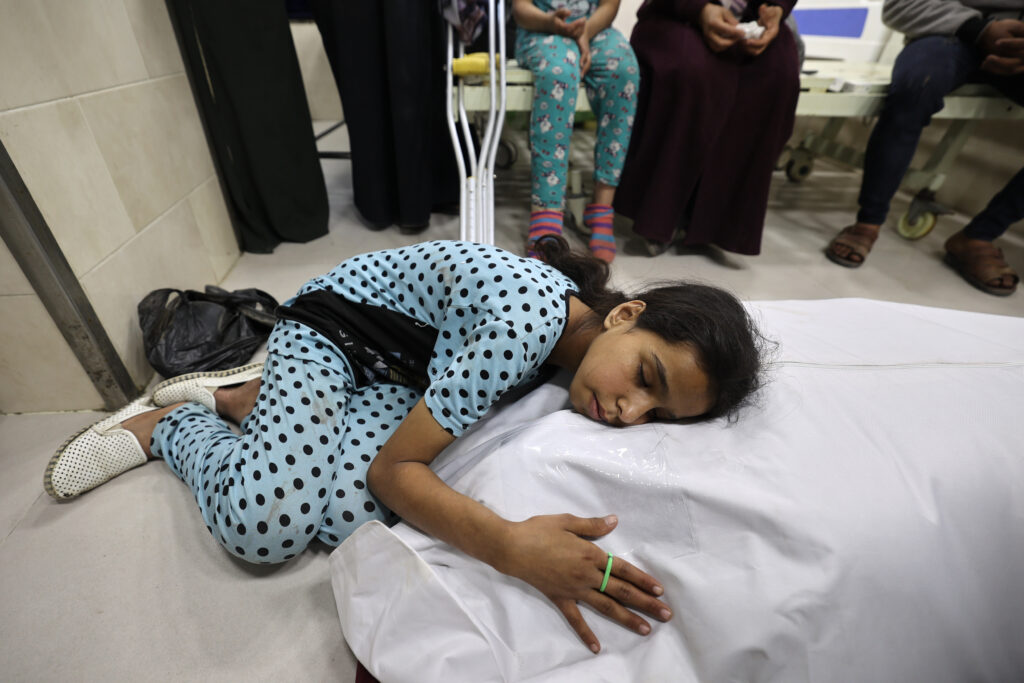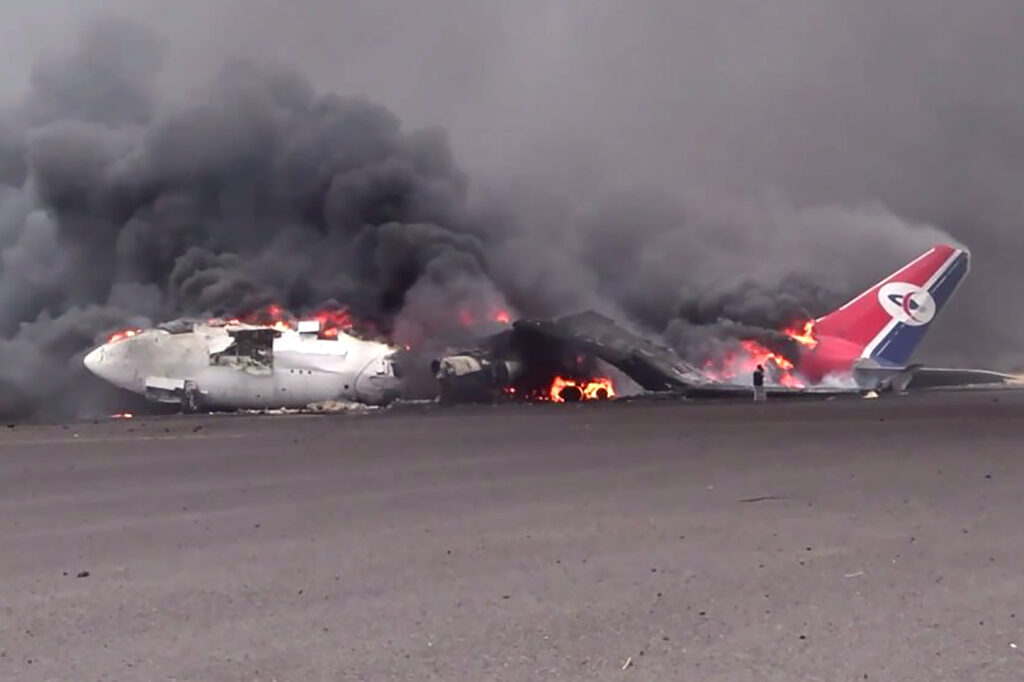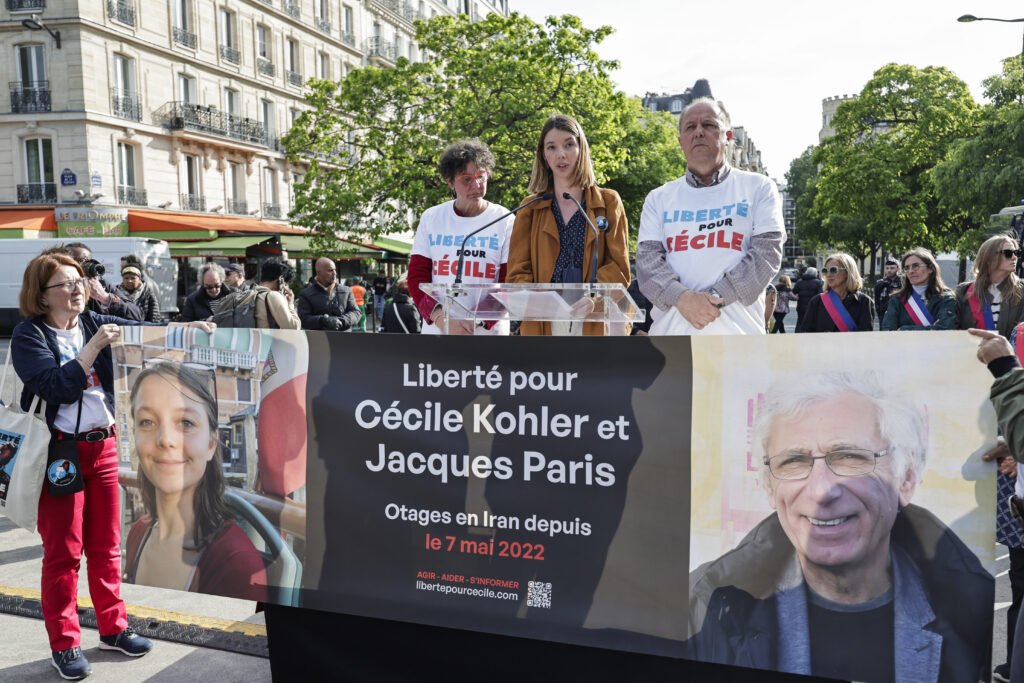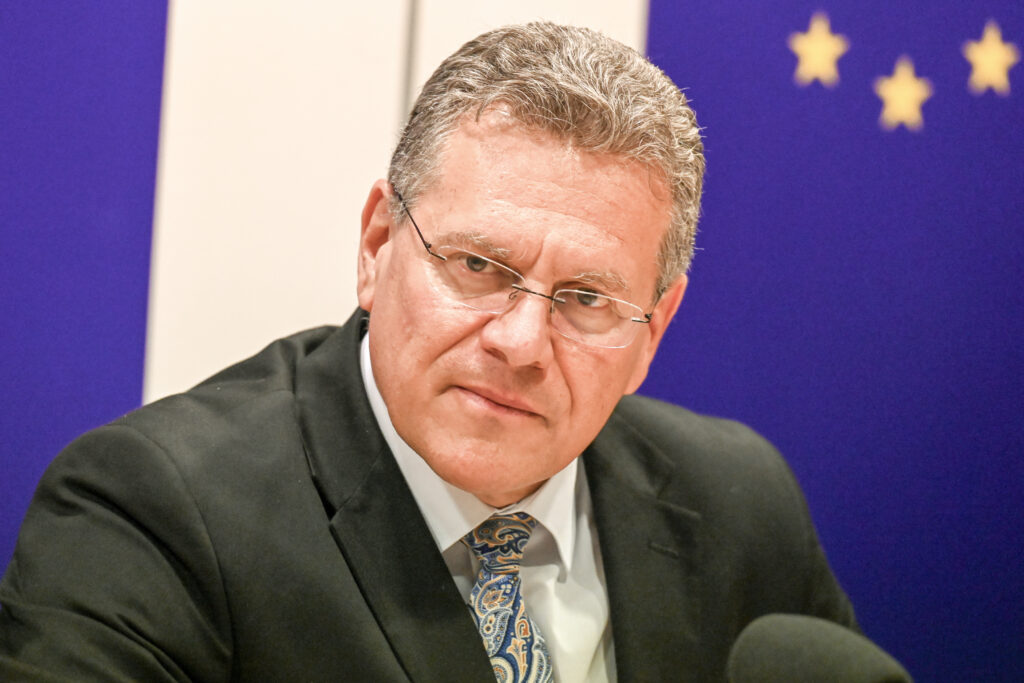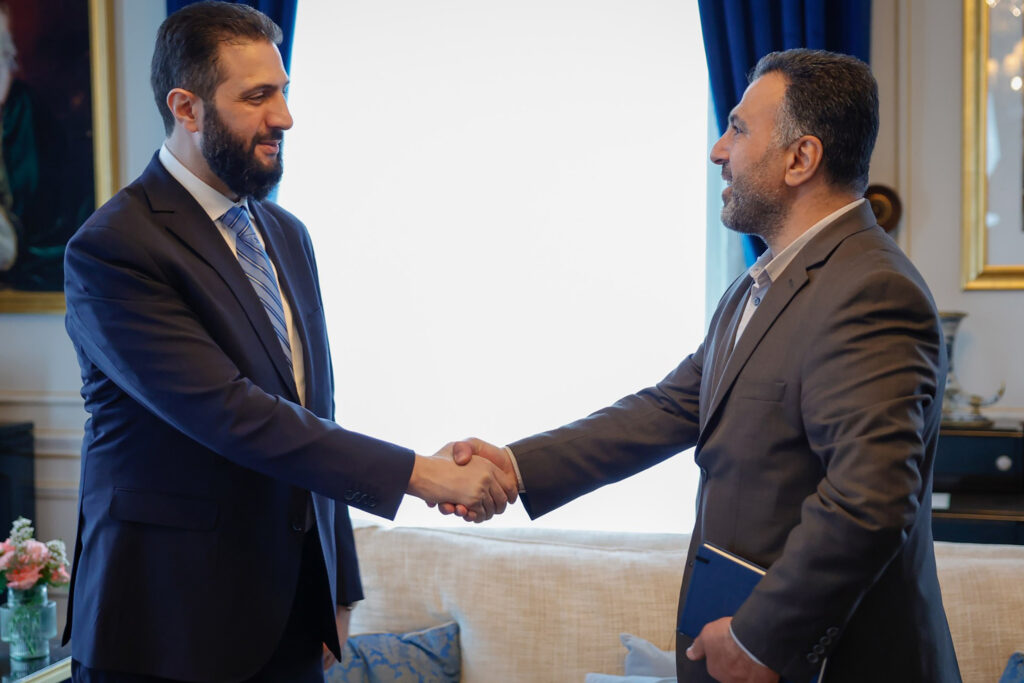AFP Asia Business
UN experts warn of ‘annihilation’ in Gaza amid Israeli strikes
UN experts demanded action on Wednesday to avert the “annihilation” of Palestinians in Gaza, as rescuers said Israeli strikes across the territory killed dozens of people.A planned expanded offensive revealed by the Israeli military has drawn international condemnation, after UN agencies previously warned of humanitarian catastrophe in the Palestinian territory already devastated by 19 months of war.More than 20 independent United Nations experts said the world faced a “stark decision” to “remain passive and witness the slaughter of innocents or take part in crafting a just resolution”.The experts implored the international community to avert the “moral abyss we are descending into”.Israel’s broader offensive, approved by the government amid a two-month aid blockade on Gaza, would include displacing “most” of its residents, the military has said.France’s President Emmanuel Macron on Wednesday called the situation in Gaza “the most critical we have ever seen”.Spain’s Prime Minister Pedro Sanchez said Madrid would present a draft resolution at the UN General Assembly aimed at “proposing urgent measures to stop the killing of innocent civilians and ensure humanitarian aid” in Gaza.British Prime Minister Keir Starmer told parliament the situation in Gaza and the occupied West Bank was “increasingly intolerable”.EU foreign policy chief Kaja Kallas on Wednesday said that Brussels had made an offer to Israel “to distribute the humanitarian aid if they don’t trust the other actors there”.Rescuers in the Palestinian territory said Israeli bombardment on Wednesday killed 59 people — 48 of them in Gaza City.”Civil defence crews, paramedics and volunteers transported at least 33 martyrs and more than 80 injured, about half of them children and some women, as a result of the Israeli air strike” in the Al-Rimal neighbourhood of Gaza City, spokesman Mahmud Bassal told AFP.- ‘World stands by’ -The strike is one of the deadliest since the resumption of Israel’s offensive on Gaza after a two-month ceasefire in the Palestinian territory collapsed on March 18.Bassal earlier reported 15 dead in strikes on the Tuffah district east of Gaza City and 11 killed elsewhere in the territory.One strike hit a house in the southern city of Khan Yunis, killing eight Al-Qidra family members and wounding 12, he said.The dead were aged between two and 54, he added.AFP footage from Khan Yunis’s Nasser Hospital showed wounded children crying on hospital beds while bodies covered in blankets arrived in ambulances.”They were sleeping and the house collapsed on them,” said Abir Shehab, adding that her brother had been killed.”We die of hunger, we die of war, we die of fear, we die of everything, and the whole world stands by and watches us die,” she said.Israel’s military did not immediately comment on the strikes.World Central Kitchen (WCK), which ran one of the last bakeries still operating in Gaza, late Wednesday announced it no longer had the supplies to cook meals or make bread in Gaza.”Additional food and equipment are ready to be shipped to the border from Jordan and Egypt. Our vital work cannot continue without permission from Israel for this aid to enter,” the charity said in a statement.- ‘Desperate attempts’ -Hamas reiterated its call for a “comprehensive” agreement to end the war earlier on Wednesday.”Hamas and the resistance factions insist on reaching a comprehensive agreement and a full package to end the war and aggression, along with a roadmap for the day after,” political bureau member Bassem Naim told AFP on Wednesday.”There are desperate attempts ahead of (US President Donald) Trump’s visit to the region… to force through a partial deal,” he said.Trump is due in the Gulf next week for talks with the powerful monarchies.Saudi Arabia, one of the stops on the US president’s visit, on Wednesday voiced its “categorical rejection” of Israel’s plan to expand its offensive.An Israeli official said this week the expanded Gaza offensive would entail the “conquest” of Gaza.Before it begins, a senior Israeli security source had said the timing of troop deployments would allow a “window of opportunity” for a possible hostage deal coinciding with Trump’s visit.”We want to try and get as many hostages saved as possible,” Trump said at the White House, without elaborating.The health ministry in Hamas-run Gaza said Wednesday at least 2,545 people have been killed since Israel resumed its campaign, bringing the war’s overall toll to 52,653.Hamas’s October 2023 attack resulted in the deaths of 1,218 people on the Israeli side, mostly civilians, according to an AFP tally based on official figures.Militants also abducted 251 people, 58 of whom are still held in Gaza, including 34 the Israeli military says are dead.
Yemen’s Huthis to keep attacking Israeli ships despite US deal
Yemen’s Huthi rebels will continue targeting Israeli ships in the Red Sea, an official told AFP on Wednesday, despite a ceasefire that ended weeks of intense US strikes on the Iran-backed group.A day after the Huthis agreed to stop firing on ships plying the key trade route off their shores, a senior official told AFP that Israel was excluded from the deal.”The waterways are safe for all international ships except Israeli ones,” Abdulmalik Alejri, a member of the Huthi political bureau, told AFP.”Israel is not part of the agreement, it only includes American and other ships,” he said.The Huthis, who have controlled large swathes of Yemen for more than a decade, began firing at Israel-linked shipping in the Red Sea and Gulf of Aden in November 2023, weeks after the start of the Israel-Hamas war.They broadened their campaign to target ships tied to the United States and Britain after military strikes by the two countries began in January 2024.Alejri said the Huthis would now “only” attack Israeli ships. In the past, vessels visiting Israel, or those with tenuous Israeli links, were in the rebels’ sights.On Wednesday, Huthi spokesman Yahya Saree said their forces had launched two attacks, targeting Ramon Airport in southern Israel with two drones and “a vital target of the Zionist enemy” in the Tel Aviv area “using a Yafa drone”.Iran’s foreign ministry spokesman earlier Esmaeil Baqaei “welcomed the cessation of US aggression against the country”, praising Yemenis for their “legendary resistance”.Saudi Arabia also commended the deal, a foreign ministry statement said, as did the United Nations which called for “restraint and the deescalation in and around Yemen”.- Airport strike -The US-Huthi agreement was announced after deadly Israeli strikes on Tuesday put Sanaa airport out of action in revenge for a Huthi missile strike on Israel’s Ben Gurion Airport.Sanaa airport director Khaled alShaief told the rebels’ Al-Masirah television the Israeli attack had destroyed terminal buildings and caused $500 million in damage.Oman said it had facilitated an agreement between Washington and the rebels that “neither side will target the other… ensuring freedom of navigation”.US President Donald Trump, who will visit Gulf countries next week, trumpeted the deal, saying the Huthis had “capitulated”.”They say they will not be blowing up ships anymore, and that’s… the purpose of what we were doing,” he said during a White House press appearance.The ceasefire followed weeks of stepped-up US strikes aimed at deterring Huthi attacks on shipping. The US attacks left 300 people dead, according to an AFP tally of Huthi figures.The Pentagon said last week US strikes had hit more than 1,000 targets in Yemen since mid-March in an operation that has been dubbed “Rough Rider”.Alejri said recent US-Iran talks in Muscat “provided an opportunity” for indirect contacts between Sanaa and Washington, leading to the ceasefire.”America was the one who started the aggression against us, and at its beginning, we did not resume our operations on Israel,” he added.”We did not target any American ships or warships until they targeted us.”Scores of Huthi missile and drone attacks have drastically reduced cargo volumes on the Red Sea route, which normally carries about 12 percent of global maritime trade.The Huthis say their campaign — and a steady stream of attacks on Israeli territory — is in solidarity with the Palestinians.
‘No signs of hope’: French couple mark three years in Iranian jail
With the lights kept on 24 hours a day, allowed outside for just 30 minutes a few times a week, a French couple held in Iran since May 2022 on Wednesday marked three years of incarceration in the Islamic republic, with no immediate prospect of an end to their ordeal.Cecile Kohler and Jacques Paris, held on spying charges they vehemently deny, are jailed in extremely tough conditions and feeling increasingly hopeless, according to their families.They are among a number of Europeans held by Iran in what France and other countries call a deliberate hostage-taking strategy to extract concessions from the West at a time of tension over the Islamic republic’s nuclear programme.Kohler, a 40-year-old literature teacher from eastern France and her partner Paris, in his 70s, were arrested on May 7, 2022, on the last day of a tourist trip to Iran. They are held in section 209 at Tehran’s Evin Prison, seen as reserved for political prisoners.They are the last known French detainees in Iran after some recent releases and are regarded as “state hostages” by the French government.”It’s very, very hard. We’re tired. We never imagined it could last this long,” Cecile Kohler’s sister Noemie told AFP ahead of the anniversary.”Cecile and Jacques are increasingly desperate and are less and less optimistic,” said Noemie, who is leading the campaign for her sister’s release.Supporters held rallies across France on Wednesday, including in Paris where Noemie was joined by their parents Mireille and Pascal. Protesters held banners with slogans including “get Cecile out of 209, her life is in danger”.President Emmanuel Macron said that France was working “tirelessly” to free the couple.”I assure their families that our support is unwavering,” Macron wrote on X.In a video message, Foreign Minister Jean-Noel Barrot called the couple’s detention “unacceptable”.The couple are being kept “in inhumane conditions that amount to torture”, he said, describing the pair as “victims of the Iranian regime”.- ‘No foreigner is safe’ -The pair were forced to make “confessions” broadcast on Iranian state television a few months after their arrest and have received only four consular visits in three years.”Unfortunately, there aren’t really any signs of hope,” said Noemie Kohler. “Our only lever is mobilisation, making as much noise as possible in the hope that it will be heard in Iran,” she said.The couple’s lights are kept on 24 hours a day and they are permitted just 30 minutes outdoors two or three times a week. Rare and short calls to their loved ones are held under the highest surveillance, the last one on April 14.France-Iran relations have become even more strained in recent weeks, with Paris threatening new sanctions against Tehran amid growing international alarm about the Iranian nuclear programme.In February an Iranian woman, Mahdieh Esfandiari, was arrested in France on charges of promoting terrorism on social media, while a Franco-Iranian influencer is to go on trial on the same charge.France has said it will lodge a complaint against Iran at the International Court of Justice in The Hague over the fate of the two, a move welcomed by their families but unlikely to hasten the case in the short term.Barrot said around 20 Europeans are held in a similar manner in Iran including “teachers, academics, journalists, tourists”.”No foreigner is safe today,” he said, calling on French citizens not to travel to Iran.Many such cases are believed not to be made public by governments and families in the hope of solving the situation without publicity.Among Europeans known to be held in Iran is Iranian-Swedish academic Ahmadreza Djalali, who was arrested during a visit in April 2016 and sentenced to death in 2017 on spying charges, which his family says are false.
EU trade chief says accelerating free trade talks with Asia
The European Union is accelerating free trade talks with Asia following hefty tariffs by US President Donald Trump, the bloc’s trade chief said Wednesday.Trump has slapped a series of higher tariffs on Europe since March and in his biggest move, he imposed a 20-percent tariff on a majority of EU goods last month — before …
EU trade chief says accelerating free trade talks with Asia Read More »
Syrian leader meets Macron in first European visit
Syrian President Ahmed al-Sharaa on Wednesday met French leader Emmanuel Macron on his first visit to Europe since overthrowing longtime ruler Bashar al-Assad, despite alarm over deadly clashes that have overshadowed the new authorities’ first months in power.Ahead of the high-profile talks at the Elysee Palace, Sharaa and his foreign minister met a whistleblower who helped document horrific torture under long-time ruler Bashar al-Assad.Sharaa and Assaad al-Shibani “met with Farid al-Madhan, known as ‘Caesar'”, the Syrian presidency said.Sharaa and other top Syrian officials, who took power after the fall of president Assad in December, have roots in the Al-Qaeda jihadist network. They are under pressure from Europe to show they are serious about protecting human rights as Damascus seeks the full lifting of Assad-era sanctions after 14 years of devastating war.Madhan revealed his identity in February during an interview with broadcaster Al Jazeera. He fled Syria in 2013 with some 55,000 graphic images including photographs showing emaciated bodies and people with their eyes gouged out.The photographs inspired a 2020 US law which imposed economic sanctions on Syria and judicial proceedings in Europe against Assad’s entourage.In Paris with Macron, Sharaa will discuss post-war reconstruction and economic cooperation, a Syrian government official said.”This meeting is part of France’s historic commitment to the Syrian people who aspire to peace and democracy,” the Elysee Palace said.By welcoming Sharaa, Macron hopes to help the authorities on the way to “a free, stable, sovereign Syria that respects all components of Syrian society”, a French presidential official told AFP.The official said France was aware of “the past” of certain Syrian leaders and was demanding that there be “no complacency” with “terrorist movements” operating in Syria.- ‘Fight against impunity’ -“If we are inviting him (Sharaa) here, it is precisely to ask him to go further in the fight against impunity,” Foreign Minister Jean-Noel Barrot told broadcaster TF1.Sharaa headed the Islamist group Hayat Tahrir al-Sham (HTS) which spearheaded Assad’s downfall after 14 years of civil war. The group formerly had links to Al-Qaeda.He is still subject to a UN travel ban and France most likely had to request an exemption from the United Nations, as was the case for his recent trips to Turkey and Saudi Arabia, according to a source familiar with the matter. France, a former colonial-era ruler of Syria, is eyeing an opportunity to increase its influence in the country after years of Russian presence, with French companies also seeking contracts.Last week, French logistics giant CMA CGM signed a 30-year contract to develop and operate the port of Latakia.Mehad, a French NGO which has operated in Syria since 2011, warned of a worsening humanitarian crisis in the country and called for “a strong response” from France.”Emmanuel Macron’s strong commitment must now be translated into action, not only by maintaining the budget allocated to humanitarian aid in Syria, but also by disbursing it quickly,” said Mehad director Mego Terzian.- ‘Serious error’ – Syria’s new Islamist authorities have vowed inclusive rule in the multi-confessional, multi-ethnic country.But sectarian clashes in March, in which more than 1,700 people were killed, mostly among Assad’s Alawite minority, sparked international condemnation and doubts over Syria’s new path.More recent clashes involving fighters from the Druze community and reports of abuses from NGOs have also raised doubts about the interim government’s ability to control extremists in its ranks.Adding to pressure on the new Syrian government, Israel has launched hundreds of strikes on the country since Assad’s overthrow, including one near the presidential palace in Damascus on Friday.The invitation for Sharaa has caused controversy in France, with far-right leader Marine Le Pen accusing Macron of hosting talks with “a jihadist” in a “provocative and irresponsible” meeting.On the traditional right, the head of the right-wing Republicans in parliament, Laurent Wauquiez, denounced the meeting as “a serious error”.”We don’t welcome leaders who are former terrorists and members of organisations that want to attack France,” he said.Barrot, who met the Syrian leader in Damascus in January, defended the talks and said that Paris was engaging in a “demanding” dialogue with Damascus.”If Syria were to collapse today, if it were to break up, this would roll out the red carpet for Daesh,” Barrot told TF1, using the Arabic acronym for Islamic State jihadists.fec-fff-sjw-lk-as/ah/jj

